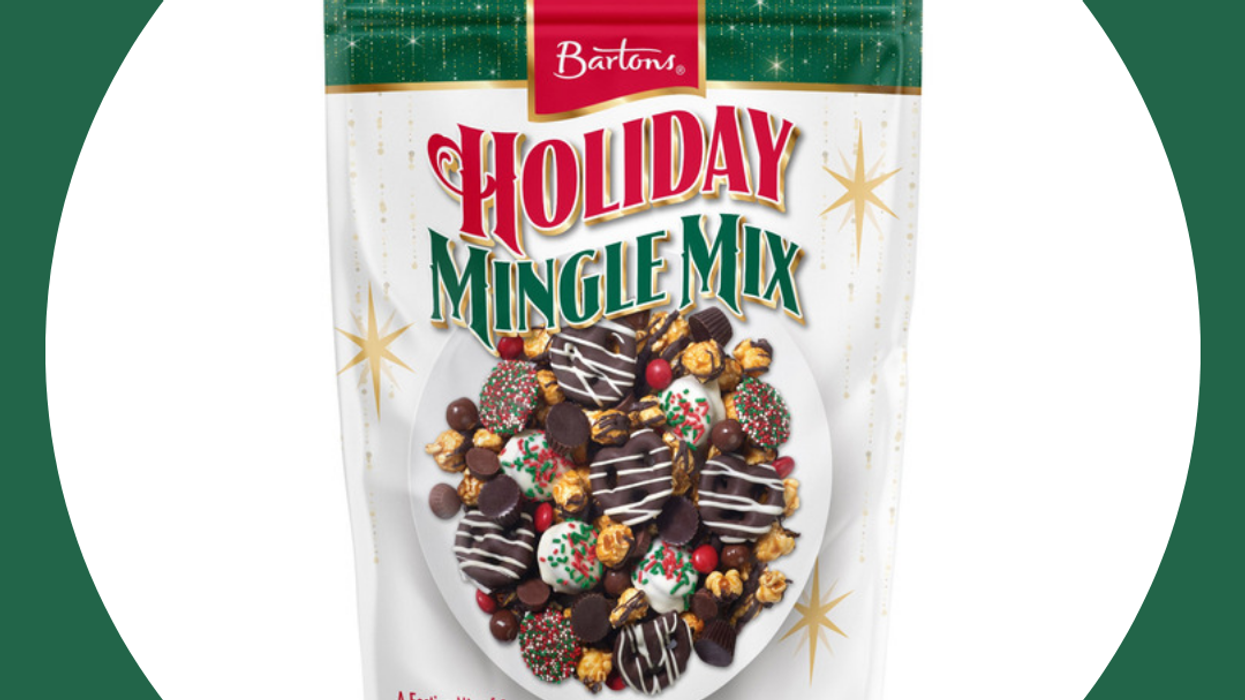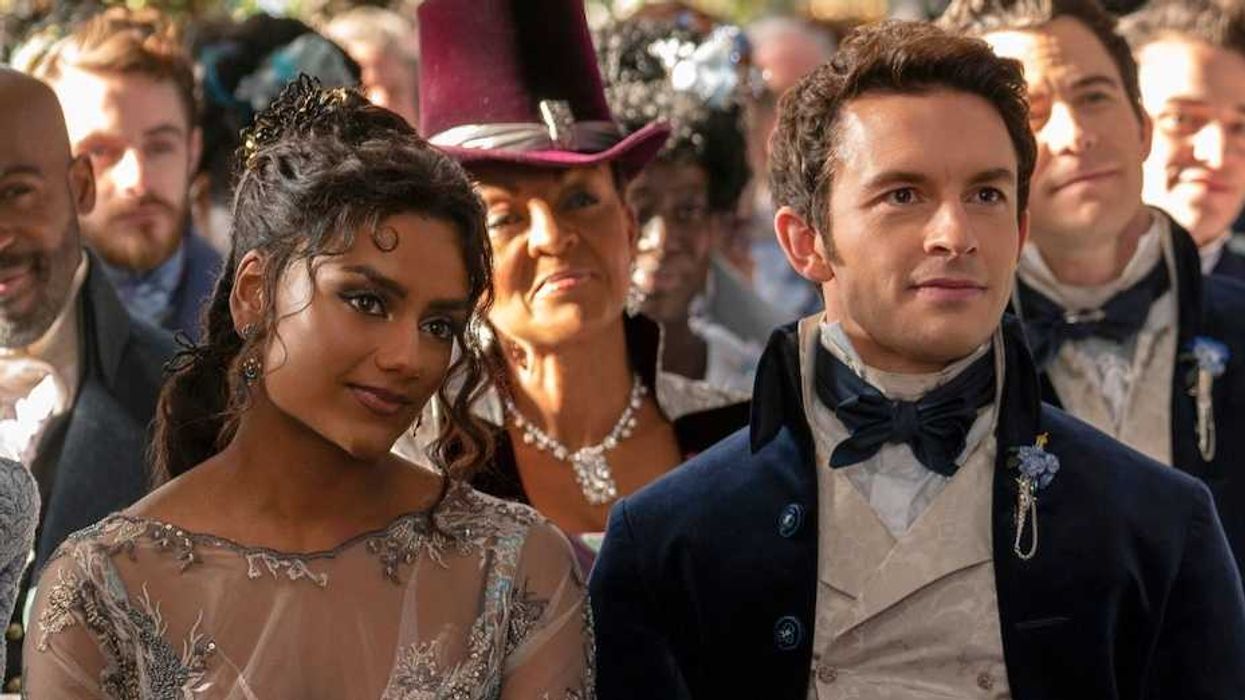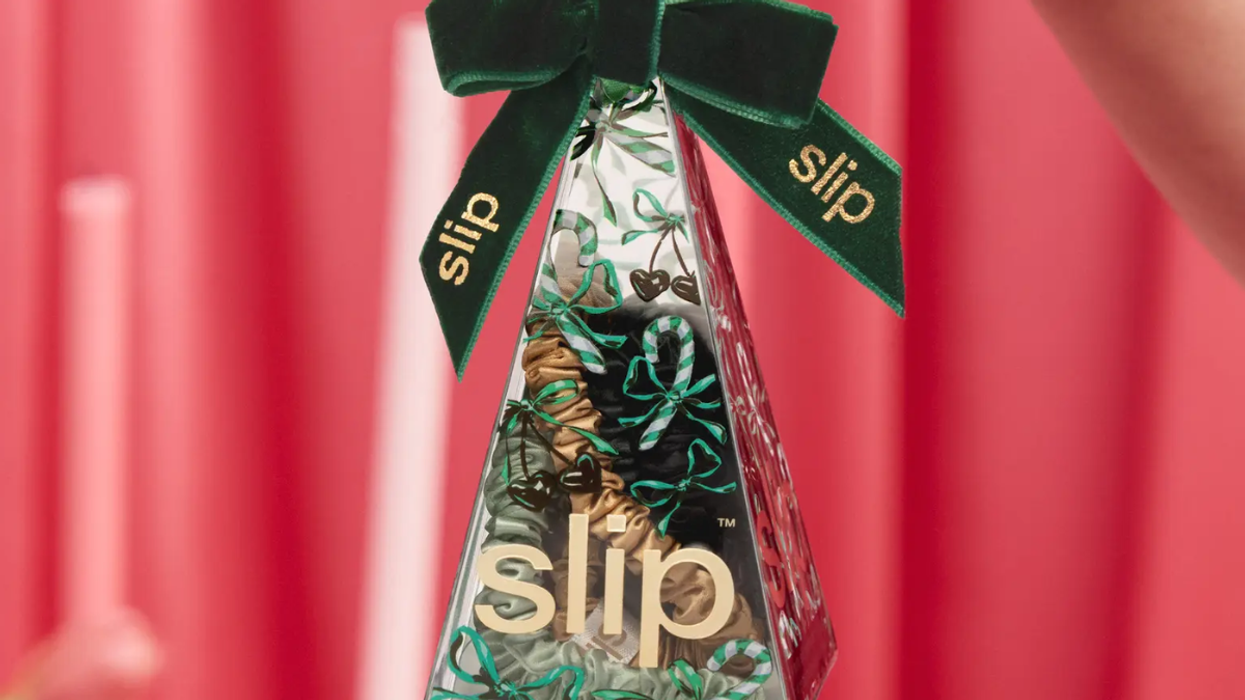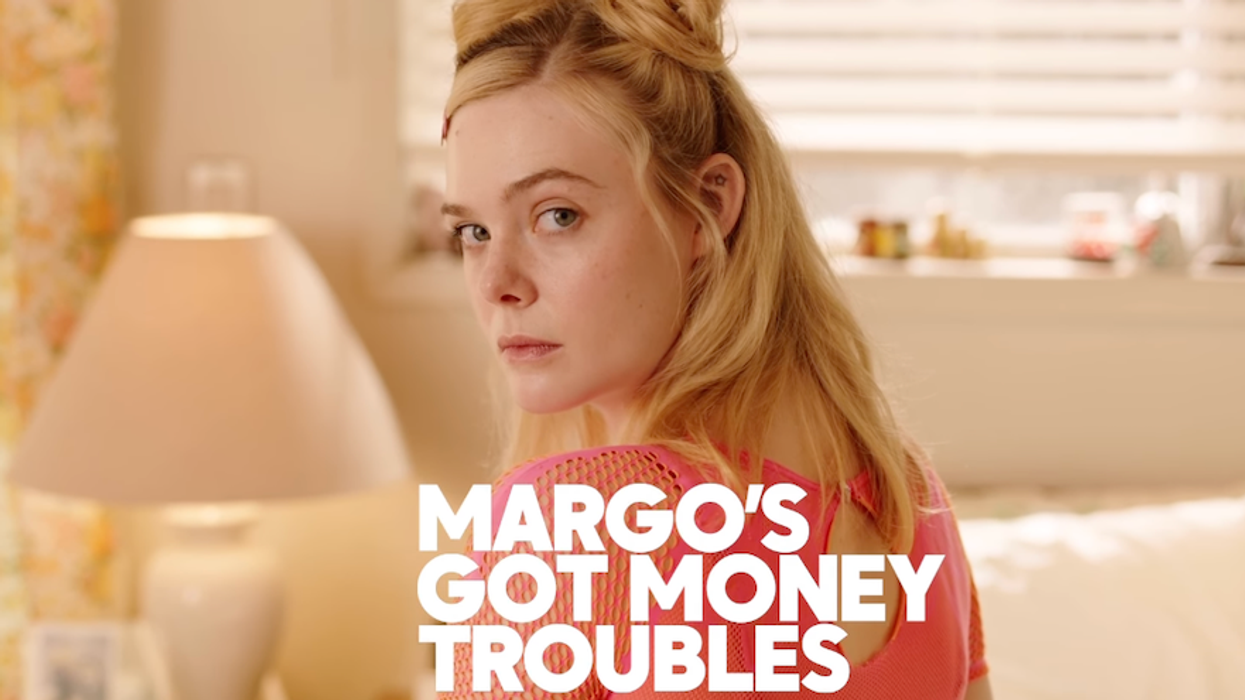Meet Rue, a fashion influencer normalizing the conversations surrounding disabled fashion.
Q+A: Ruella-Maria Matson Talks About Her Passion For Disabled Fashion
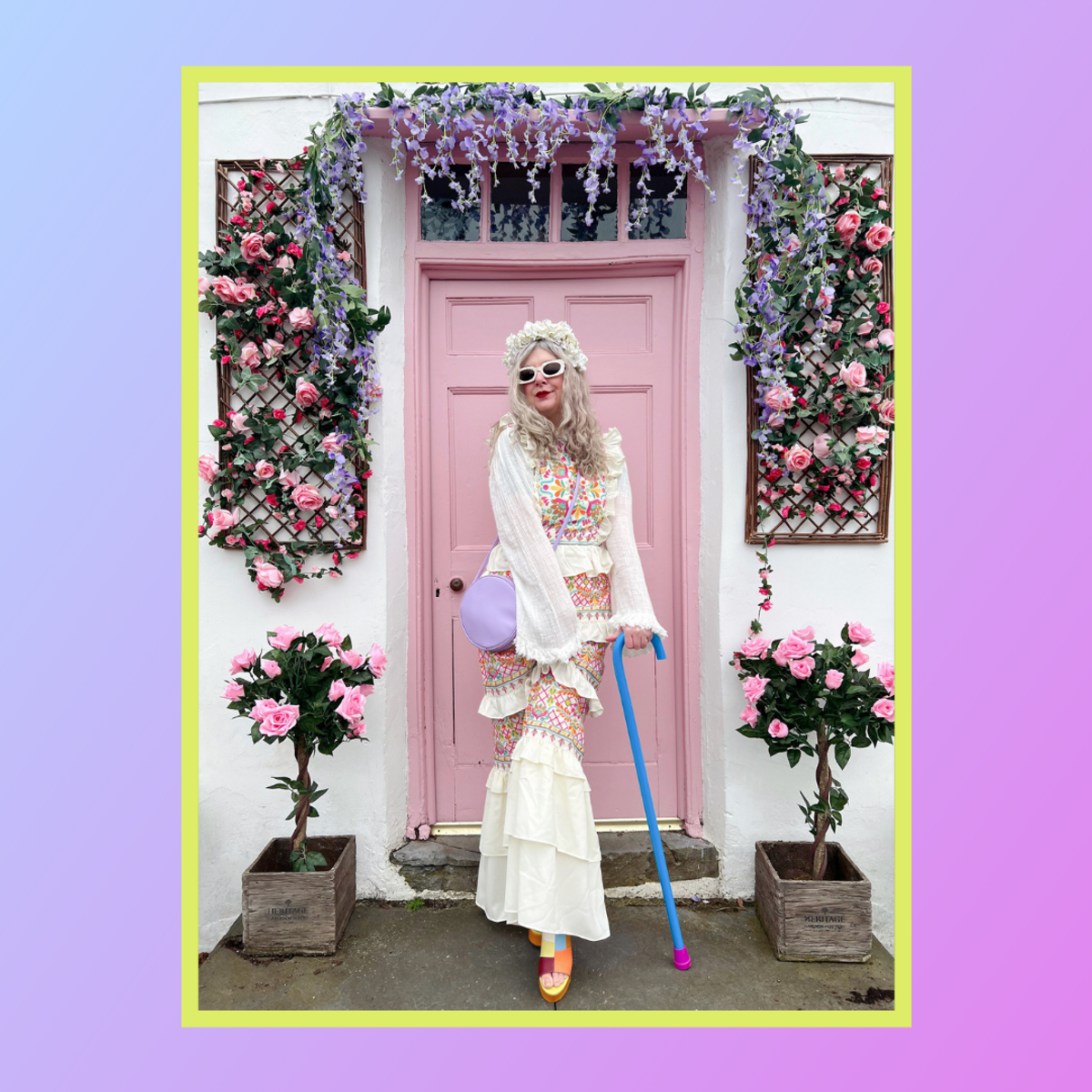
Meredith Holser is the Shopping Editor at Brit + Co, covering everything from seasonal fashion trends and the best grocery finds from Trader Joe's to shoes actually worth splurging on and life-changing beauty products. Outside of work, you can catch Meredith hiking, trying new recipes, and dreaming about having a yummy little treat.
Ruella-Maria Matson (44) is a disabled Scottish fashion influencer that’s focused on changing how the abled world views disability. Through vibrant, expressive, and daring outfits that stray from the status quo, she’s bringing disabled joy to light and embracing her own personal style, so everyone feels empowered to do the same. We chatted with Matson about her passion for fashion, community, and the magic of being herself.
B + C: Hey there, Rue, tell us a little bit about yourself!
Rue: I'm Ruella-Maria, Rue for short. I'm 44, and I come from Scotland, but live in the mountain ranges of North Wales now.
I've loved fashion as long as I can remember. I loved dressing up my Barbies, and would organize fashion shoots when playing with other kids. I fell in love with vintage fashion in particular when I was a kid playing in my church's thrift shop, dressing up in all the fancy clothes. But I didn't grow up seeing people who looked like me in fashion. I often had to use crutches.
I had surgeries, and by my mid 20's, I was using a walking stick. An ugly gray hospital one, too. There is such a stigma about mobility aids only being for older people, so I became so self-conscious. I often tried to just blend in and hide myself away. I didn't know then this was caused by my own inner ableism surrounding my disabilities.
B + C: What exactly inspired your passion for fashion?

Photo courtesy of Ruella-Maria Matson
Rue: In my 40's, I started to feel I understood myself more. I'm neurodivergent, I have physical disabilities and chronic illness. I felt braver to wear the outfits I liked. And learning that disabled people make up 15-20% of the population, I was struck by how little I saw disabled people in fashion – especially middle aged people. So, I started putting myself out there.
I'm inspired by all the disabled advocates who came before me, who each in their own way changed the course of my future. There were laws called "ugly laws" in place until the 1970's that kept disabled people in institutions – we were to be kept out of sight. They were horrific, and played a huge part in why society avoids disability to this day. It makes people uncomfortable.
In my own small way, I aim to normalize people seeing disability and not fearing it. I live an amazing life. It has its ups and downs, but so does everyone's. I like to show off my mobility aids with epic fashion pieces as a kind of juxtaposition of difference in a positive light, but also to show how amazing they are. I just want to show some disabled joy.
B + C: What's one of your first memories with fashion?
Rue: My first memory of truly loving fashion was when I was about 5 years old, and my mum bought me a pair of red patent shoes that I thought were the most beautiful things in the world. I snuck out of bed to put them back on, and my mum found me wearing them in the morning!
B + C: How would you describe your style?
Rue: Eclectically joyful. I love bright, bold, patterned pieces, and I like to mix modern and vintage clothing. And of course, my beautiful walking sticks from @neowalks and my wheelchairs are fashion statements in themselves too.
B + C: Why do you lean towards wearing bright, eclectic clothing?
Rue: Oooh, I think because I love all things beautiful. I love bright springtime flowers, the glow of the summer sun, and I become delighted when a rainbow appears! It’s all bright, bold, and beautiful, and fashion has it all in pieces you can wear. It brings me joy. It helps me feel good when I dress up. Sometimes it’s only for a short while, and not to go anywhere, but it’s always worth it.
A little less whimsically though, in all honesty, because I hid away most of my life in dark, baggy clothing, trying to blend in or copying other people trying to fit in. Now I wear anything that makes me feel the same way as when I was that delighted kid who got her first red patent shoes and fell so much in love with them that it made her heart skip a beat (which might actually have been tachycardia), but still!
B + C: Has fashion ever helped you feel more confident? If so, how?
Rue: Absolutely. I’m neurodivergent and have physical disabilities, and I spent most of my life embarrassed by that, focused on trying to fit in or hide myself away. Now, I’m proud of who I am, and I use fashion to express that. I like that I’m different and was made to stand out, so I wear the clothes that reflect that in me. Wearing what you love brings an indescribable joy!
B + C: How are you raising awareness about the disabled community?
Rue: Disabled people make up almost a quarter of the population and intersect with every minority, but are so often overlooked or forgotten. I’m trying to bring conversations about disability inclusion into the mainstream and world of fashion by putting myself out there on social media. You don’t see many 44-year-old, visibly disabled people being represented, so I’m going to keep doing my thing until it’s normalized.
B + C: Why is it important to show the world that people with disabilities are joyful, too?
Rue: Too often, society sees disability as a pitiful thing to be feared, as that’s how we have been represented through history and media. But I have an amazing life – it’s not always easy, but nobody's is. We need to see more representation of disabled people just out doing life, being married, being parents, having jobs, socializing, and being happy.
B + C: Was there ever a moment you thought maybe fashion wasn't for you? Or have doubted yourself?
Rue: Oh absolutely. So many times in my life. As a teen especially, I didn’t get trends and just wore stuff that I liked, but other kids made fun of me for it, so I thought I was doing fashion wrong. Most of my life, I felt like I wasn’t pretty enough to be fashionable, or I didn’t wear the right clothes or have the right body for it. But that was because I wasn’t seeing people like me at all!
I guess until quite recently, I second-guessed things: Will other people like this? Does this go? Does this match? Am I too old to wear this? Will people stare at me? Will people laugh at me? But now the question is, “do I like this?” the rest of that stuff doesn’t pop into my head anymore. It’s about how you see yourself that matters.
B + C: How do you encourage yourself through those moments of doubt?
Rue: I remind myself I am different, and that’s perfectly fine. That people will look, but if I smile, then they smile back. If I’m enjoying the moment, then it becomes infectious and others enjoy it too.
B + C: What's the biggest difference you notice in society's acceptance of disability, from times you were growing up, to now?
Rue: I was born in 1978, and with ‘the silent generation', nobody spoke about anything – certainly not disability. I spent my childhood in hospitals and at medical appointments being assessed. I needed additional help at school and psychiatric intervention from a young age, but no one told me why. Now, I have a whole community of disabled people like me available at the touch of a button that I can talk to – that I can see, going about living their lives. It normalizes my experience of disability.
B + C: What ways do you feel supported by your community?
Rue: All I felt about myself growing up was fear and shame. No matter how hard I tried to fit in, I just didn’t, and people ostracize you for difference. I hated myself and just wanted to be normal. This had a huge impact on my mental health.
The disabled community taught me about ableism and the negative way we are taught to see disability. It helped me work on my own inner ableism, and to slowly let go of things that had me hiding away and holding me back. I feel like I only got to become my true self in recent years.
Seeing other people with disabilities and hearing about similar experiences also helped normalize it for myself and helped me see myself as not broken – just not like everyone else – and I learned to embrace it.
Find Rue @rubyrouxbijou on Instagram + follow our newsletter for more unique stories.
Header photo courtesy of Ruella-Maria Matson



